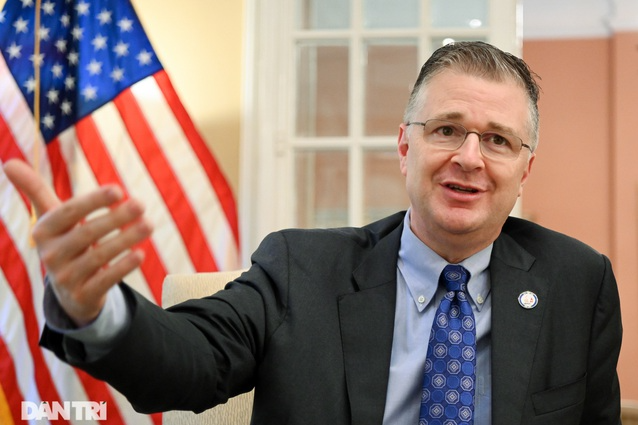A senior official of U.S Department of State told U.S Congress on Tuesday that the Biden administration was confident of reaching a strategic agreement with the Marshall Islands.
The Pacific island nation’s foreign minister had called for more U.S money to deal with the legacy of massive U.S nuclear testing to enable his country to extend a Compact of Free Association (COFA) with Washington governing bilateral relations.
Assistant Secretary Daniel Kritenbrink told a subcommittee of the House of Representatives Foreign Affairs Committee that the administration was “absolutely committed” to reaching an agreement with the Marshall Islands, calling such agreements “central to our entire position in the Pacific.”
“Every one of our partners, sovereign partners, in the Pacific, they have their own needs, desires, their own politics,” Kritenbrink said, declining to give more details about the negotiations. “We’re working through that right now, but I’m confident that we will get there.”
The Marshall Islands and two other Pacific island nations are covered by COFAs. Under this, the U.S has responsibility for their defence and providing economic assistance, while gaining exclusive access to huge strategic swaths of the Pacific.
In May, the U.S announced that it had finalised terms of COFA with Micronesia and Palau. However, talks with the Marshall Islands are yet to result in an agreement.
Renewal of the deal, subject to approval from the Congress, has become a key part of U.S efforts to shore up its influence in the region.
China has been taking assertive steps to gain influence in the region traditionally considered to be backyard of Australia and New Zealand. Chinese assertiveness has shaken Western powers, including the U.S to renew efforts to engage with Pacific Island nations.
Under memorandums of understanding agreed this year, the U.S will commit a total of US$7.1 billion over 20 years to the three nations.
Marshall Islanders are still plagued by health and environmental effects of 67 U.S nuclear bomb tests from 1946 to 1958, which included “Castle Bravo” at Bikini Atoll in 1954 – the largest U.S bomb ever detonated.
SOURCE: WION NEWS/ PACNEWS














